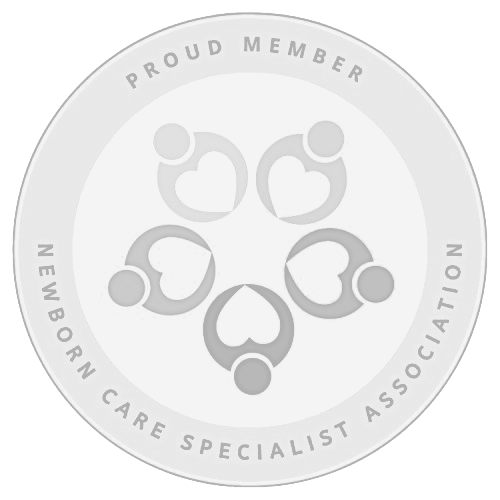In the intricate tapestry of nanny responsibilities, weaving health insurance into the fabric can be an often-overlooked but crucial element.
As a dedicated caregiver, your well-being is paramount, and understanding health insurance is an integral part of safeguarding your future.
In this comprehensive guide, we will embark on an illuminating journey through the realm of health insurance for nannies. From deciphering the labyrinthine landscape of insurance options to navigating enrollment processes and utilizing benefits effectively, we at Hello! Nanny have got you covered.
Understanding Health Insurance Basics
At its core, health insurance serves as a financial cushion against the unpredictable nature of medical expenses. A health insurance plan provides you access to medical services, medications, and treatments while alleviating the burden of exorbitant costs and can help empower you as a nanny.
Health Insurance Options for Nannies
There are many types of health insurance plans for nannies and they can be explored further in this article or by contacting our preferred payroll provider who can provide families with additional information and resources regarding nanny payroll and health benefits.
Employer-Sponsored Plans
As household employees, you can enjoy health insurance coverage provided by their household employers. This option presents a convenient pathway to comprehensive coverage, often sharing the financial load between the household employee and employer.
Pros:
- Stability: Employer-sponsored plans often offer comprehensive coverage.
- Simplified Enrollment: The enrollment process is usually smoother.
- Cost Sharing: Employers often share the premium costs.
Cons:
- Limited Choice: You’re bound to the plan chosen by the employer.
- Dependency: Coverage might cease if you change employers.
Eligibility criteria can vary, but typically they’re tied to factors such as the number of hours you work and your employment status.
Individual Plans
Should employer-sponsored coverage not be available, individual health insurance plans emerge as a lifeline. Customizable and tailored to your unique needs, these plans offer a sense of autonomy with your health insurance.
Exploring the different individual nanny health insurance plans requires a discerning eye. Factors like individual health insurance premiums, deductibles, and coverage networks form the bedrock of your decision-making process.
Also, you must don your detective hat to unravel the nuances of coverage options and healthcare costs. This journey empowers you to choose the plan that seamlessly aligns with your needs.
Government Programs (Medicaid, Chip)
Government-sponsored programs like Medicaid and CHIP extend a helping hand to those in need, ensuring that even in challenging circumstances, health care remains accessible.
Understanding the Health Care Stipend
Apart from traditional health insurance, nannies can receive a health care stipend from their employing family. This flexible approach recognizes that nannies might already possess their own established health care plan. In such cases, families often offer to contribute a fixed taxable portion toward the plan. The extent of contribution can vary; some families contribute up to 50%, while others offer full coverage.
What makes the healthcare stipend particularly noteworthy is its coverage of unforeseen healthcare concerns. Life is unpredictable, and health issues can arise without warning.
Exploring Government Programs

Medicaid for Nannies
Let’s delve into the nuances of Medicaid, encompassing eligibility criteria, the application process, and the benefits and coverage it offers.
Eligibility Criteria for Medicaid
Eligibility for Medicaid is often determined by a combination of factors, including income, family size, and other circumstances.
While eligibility criteria can vary between states, the underlying principle remains consistent: Medicaid aims to provide healthcare coverage for low-income individuals and families who meet specific requirements.
As a nanny, your income and family size are key factors in determining your eligibility. Ensuring your income falls within the threshold set by your state and that you meet other specified criteria is crucial to unlocking the gateway to Medicaid coverage.
Application Process for Medicaid
The application process for Medicaid requires careful navigation through a series of steps. Typically, you will need to apply to your state’s Medicaid agency. This can be done online, in person, by mail, or through other designated methods.
Ensuring accuracy and completeness in your application is paramount, as any omissions or errors could potentially delay the processing of your request. Required documentation, such as proof of income, identification, and residency, should accompany your application to substantiate your eligibility.
Upon submission, your application will undergo review and evaluation by the Medicaid agency. This assessment determines whether you meet the criteria for enrollment. If approved, you will receive a notification of your coverage and any additional steps required to activate it.
Benefits and Coverage Under Medicaid
Medicaid extends a comprehensive umbrella of benefits and coverage that spans a wide spectrum of medical services. From essential doctor visits and hospital stays to prescription medications, preventive care, and even mental health services, Medicaid aims to address both routine and critical qualified health expenses. This expansive coverage ensures that you have access to the medical care required to maintain your well-being.
Medicaid may also encompass services such as dental and vision care, which are essential components of holistic health.
It’s worth noting that the specific benefits and coverage provided can vary from state to state. Therefore, it’s prudent to consult your state’s Medicaid agency or website to gain a comprehensive understanding of the services covered under your Medicaid plan.
Children’s Health Insurance Program (CHIP)
The Children’s Health Insurance Program (CHIP) is a federal program that collaborates with states to provide health insurance to children and, in certain instances, pregnant women. CHIP bridges the gap for those who may not qualify for Medicaid but still require affordable healthcare solutions. Eligibility criteria for CHIP are often determined based on factors such as income, family size, and age.
As a nanny, understanding the eligibility criteria is crucial if the children you care for might benefit from CHIP coverage. Ensuring that their family’s income falls within the state-specific threshold and meeting any additional requirements can unlock the door to this vital program.
Enrolling in CHIP
The process of enrolling in CHIP involves navigating a pathway that begins with understanding your state’s specific enrollment procedures. This typically involves applying to your state’s CHIP agency. Application methods may vary, including online submissions, in-person visits, or mail-in forms. Accurate and complete information, accompanied by necessary documentation, is vital to expedite the enrollment process.
Upon submission, the application will be reviewed to ensure it meets the eligibility criteria. If approved, you will receive confirmation of enrollment, along with details on the next steps. For children under your care, facilitating their enrollment can be instrumental in securing their access to necessary medical services.
Benefits Provided
The hallmark of CHIP lies in its provision of a comprehensive array of benefits tailored to the needs of pregnant women and children. These benefits encompass a spectrum of healthcare services that are essential for maintaining well-being and addressing medical needs.
CHIP benefits often include regular check-ups, doctor visits, vaccinations, prescription medications, dental and vision care, hospital stays, and emergency services. Additionally, preventive services and screenings are emphasized, ensuring that potential health issues are identified early. This focus on preventive care aligns with the program’s goal of fostering long-term health and well-being.
Furthermore, CHIP extends coverage beyond the basics, encompassing services that cater to the unique needs of children. Behavioral health services, developmental screenings, and early interventions are among the specialized benefits that contribute to the holistic health of children.
It’s important to note that the specific benefits provided can vary from state to state. Therefore, consulting your state’s CHIP agency, website, or insurance company is essential to gain a comprehensive understanding of the services included in your CHIP plan.
The Affordable Care Act (ACA) and Nannies
The Affordable Care Act (ACA), often referred to as “Obamacare,” revolutionized the landscape of health insurance in the United States.
ACA and Its Impact on Health Insurance Options
The ACA brought about a transformative shift in the world of health insurance by introducing regulations and reforms that aimed to make healthcare coverage more accessible and comprehensive. This impact resonates across a multitude of aspects, including coverage for essential health benefits, preventive services, and protection against discriminatory practices based on health status.
As a nanny, the ACA translates into enhanced coverage options and safeguards that cater to your health needs. By understanding the broader implications of the ACA, you can navigate the insurance landscape with greater confidence, knowing that the provisions of the act align with your rights to accessible and quality healthcare.
Nanny Classification and ACA Requirements
Nannies and caregivers occupy a unique role in the employment spectrum, raising questions about their classification under the ACA. Understanding how the ACA defines nannies and caregivers is pivotal in determining the applicability of its requirements to your specific situation. The ACA typically extends its mandates to employers with a certain number of employees, and this includes nannies and caregivers in some cases.
The ACA mandates that applicable employers offer health insurance coverage that meets specific criteria. As a nanny, it’s important to discern whether your employer meets these criteria and if you are entitled to coverage under the ACA’s provisions. This understanding empowers you to advocate for your rights to comprehensive health coverage in alignment with the ACA’s requirements.
Exploring Health Insurance Marketplaces
The establishment of health insurance marketplaces, also known as exchanges, was a cornerstone of the ACA’s implementation. These marketplaces serve as platforms where individuals and families can explore a diverse array of health insurance plans offered by different insurers. Navigating these marketplaces presents a treasure trove of options, each tailored to varying needs and budgets.
As a nanny, exploring health insurance marketplaces broadens your horizons, offering insight into plans that suit your unique circumstances. These marketplaces allow you to compare healthcare coverage options, costs, and benefits side by side, enabling you to make an informed decision that aligns with your health and financial requirements.
Enrollment Periods and Deadlines
Timing is of the essence when it comes to health insurance enrollment. Enrollment periods are specific timeframes during which individuals can sign up for a health insurance policy whether through the website or with an insurance company directly. The ACA introduced standardized open enrollment periods to ensure that individuals have ample opportunities to secure coverage.
Subsidies and Financial Assistance
The ACA recognized that the cost of health insurance can be a barrier for many individuals and families. To address this concern, the ACA introduced subsidies and financial assistance to help individuals afford coverage. These subsidies are based on factors such as income and family size and are designed to alleviate the financial burden of health insurance premiums.
As a nanny, these subsidies can be a lifeline, making comprehensive health coverage more attainable. By exploring the eligibility criteria for subsidies and financial assistance, you can tap into this cushion of support and ensure that your nanny’s health insurance journey aligns with your budgetary considerations.
Factors to Consider When Choosing Health Insurance
Making well-informed decisions requires careful consideration of essential factors in the realm of health insurance.
- Coverage Options: The pantheon of coverage options encompasses many medical services. Delving into specific aids in constructing a safety net tailored to your needs.
- Network Considerations: Navigating coverage networks ensures your access to preferred doctors and medical facilities, aligning seamlessly with your lifestyle.
- Deductibles, Copayments, and Coinsurance: Scrutinizing these financial facets reveal the monetary implications of your health insurance journey.
- Prescription Drug Coverage: Your prescription needs are unique, and comprehending the breadth of medication coverage is a cornerstone of your health insurance plan.
- Vision and Dental Coverage: Beyond traditional medical care, ocular and oral health must also be addressed. Understanding vision and dental coverage is a must.
- Out-Of-Pocket Maximums: Placing a cap on your financial exposure as these limits are a preventative measure against unforeseen medical expenses.
Navigating the Enrollment Process

Open Enrollment vs. Special Enrollment Periods
Distinguishing between open enrollment and special enrollment periods empowers you to secure coverage precisely when it’s needed most.
Open enrollment is a fixed timeframe, typically occurring annually, during which individuals can enroll or make changes to their plans.
Special enrollment periods arise from significant life events, such as marriage, the birth of a child, or loss of coverage. Recognizing these windows of opportunity ensures you don’t miss the boat on comprehensive health care coverage.
Steps to Enroll in Health Insurance
Navigating the enrollment process isn’t a leap, but a methodical stroll through a well-lit path. This journey demands systematic research, documentation, and decision-making.
- Begin by assessing your medical needs and understanding the coverage options available to you.
- Research the plans’ networks, costs, and benefits to align them with your requirements.
- Once you’ve narrowed down your choices, assembling the required documents—proof of identity, income, and residency—places you on the fast track to enrollment success.
- Finally, armed with knowledge and documentation, your decision-making process should consider not only costs but also the comprehensiveness of coverage.
Required Documents
Smooth enrollment hinges on being well-prepared. Ensure you have your Social Security Number, proof of income, citizenship or legal residency documentation, and any relevant tax forms at the ready.
These documents are your passport to navigating the health insurance enrollment journey smoothly. Being armed with these essentials expedites the process and helps you avoid unnecessary hiccups.
Utilizing Insurance Brokers or Agents
When embarking on a complex journey, having a seasoned guide can make all the difference.
Insurance brokers or agents serve as these navigational companions, helping you navigate the labyrinthine options with confidence. Their expertise ensures you understand the intricate details of each plan, from offering health benefits to coverage limitations. They decode complex terminology, compare costs, and answer your queries, leading you toward an informed decision that aligns with your needs and budget.
Coverage for Pre-Existing Conditions
Pre-existing conditions are medical conditions or illnesses you already have before seeking coverage. Understanding these conditions is pivotal in assessing the scope of your health coverage journey.
Chronic ailments like diabetes or heart conditions often fall under this category, and grasping the implications of these conditions on your coverage is fundamental.
Protections Provided by the ACA
The Affordable Care Act (ACA) emerged as a harbinger of relief for those with pre-existing conditions. The act mandates that insurance providers cannot deny coverage or charge exorbitant rates based on these conditions. This protective measure ensures you have a safety net, irrespective of your health history. Exploring these protections offers a comforting assurance that your health needs are accounted for.
Ensuring Coverage for Pre-existing Conditions
Maintaining coverage for pre-existing conditions demands a strategic approach. This involves careful evaluation of plans to ensure they cover the specific medical services you require.
Analyze coverage limitations, prescription drug benefits, and specialist visits to ascertain that your condition is comprehensively covered. The key lies in matching your health history with the services each plan provides, paving the way for peace of mind.
Waiting Periods and Exclusions
Unveiling waiting periods and exclusions in health insurance policies is akin to shining a light on potential obstacles. Some plans impose waiting periods before covering pre-existing conditions, necessitating your understanding of these time frames.
Additionally, exclusions might apply to certain treatments or medications related to your condition. Understanding these facets ensures that your coverage expectations align with reality.
Maintaining Health Insurance Coverage
Paying Health Insurance Premiums
Imagine health insurance premiums as the bedrock on which your health insurance policy stands. These regular payments ensure that your access to medical services remains unhindered. Timeliness and consistency in paying your premiums are paramount, as lapsed payments can result in the suspension of coverage. Setting up automated payments or calendar reminders can help you stay on track, providing a stable foundation for your health journey.
Reporting Changes in Circumstances
Life is a series of twists and turns, demanding flexibility from health insurance coverage. Reporting changes in circumstances, such as marriage, divorce, or changes in income, is not just a responsibility but a crucial step in maintaining seamless coverage.
Failing to report such changes could result in inaccurate coverage or even policy cancellations. Staying proactive and updating your insurer ensures your coverage accurately reflects your current situation.
Renewing Coverage
Renewing coverage is akin to being a torchbearer in the continuity of your health journey. As the end of your policy period approaches, it’s crucial to understand the renewal process. This typically involves reviewing your current plan, making any necessary adjustments, and ensuring that your coverage remains uninterrupted. By renewing your coverage promptly, you safeguard your health and financial well-being.
COBRA Coverage for Nannies
The dynamics of employment can change, potentially impacting your access to health coverage. COBRA (Consolidated Omnibus Budget Reconciliation Act) serves as a bridge during these transitions. If you leave your job, voluntarily or involuntarily, COBRA allows you to maintain your current health coverage for a specified period, albeit at a higher cost. This continuity provides vital breathing room as you navigate changes in employment and explore new health coverage avenues.
Utilizing Health Insurance Benefits
In-network healthcare providers compose this ensemble, collaborating with your insurer to offer you cost-effective care. Exploring your plan’s network directory unveils a treasure trove of doctors, specialists, and medical facilities that harmonize seamlessly with your coverage. Opting for in-network providers not only streamlines the financial aspect but also guarantees access to quality care.
Scheduling appointments with your chosen healthcare providers is a vital step in maintaining your health. Be proactive in seeking care when needed, whether it’s for routine check-ups or addressing medical concerns.
Understanding the information your insurance card holds—from policy numbers to contact information—empowers you to wield this card with confidence. Presenting your insurance card at medical facilities or pharmacies ensures a seamless interaction, allowing you to access the care and medications you need promptly.
After receiving care, submitting claims ensures that the financial aspects are settled accurately. Familiarize yourself with the required forms, receipts, and procedures to ensure smooth reimbursement and accurate documentation.
Nanny’s Rights and Responsibilities
Rights to Health Insurance Coverage
Your dedication to nurturing others should not overshadow your well-being. As a nanny, you have the right to health insurance coverage that safeguards your physical and financial health. This right extends beyond just coverage; it embraces comprehensive care that supports your journey toward a healthier life.
Understanding Employer Obligations
Understanding your employer’s obligations—whether to provide coverage or offer compensation—ensures transparency and a balanced partnership. Communicate openly with your employer to clarify the expectations and commitments regarding your health coverage. It is also crucial that employers of domestic workers learn about payroll obligations as well.
Nanny’s Responsibilities Regarding Insurance
While your employer plays a role in facilitating your coverage, you too have a vital role to play. This includes promptly providing necessary documentation, adhering to deadlines, and reporting changes in circumstances that might affect your coverage. Embracing these responsibilities ensures a symbiotic relationship between you, your employer, and your insurer.
Maintaining Health and Wellness
Nannies should be entitled to a wide range of benefits to help maintain their mental and physical well-being.
Importance of Preventive Care
The adage “prevention is better than cure” resonates deeply in the realm of health insurance. Prioritizing preventive care, such as regular check-ups, screenings, and vaccinations, serves as a proactive fortress against potential health challenges. Embrace these wellness checkpoints to catch potential issues early and embark on a journey of long-term health.
Health Screenings and Vaccinations
Also, regular screenings help detect conditions at their nascent stages, while vaccinations safeguard you against preventable diseases. Familiarize yourself with recommended screenings based on your age, gender, and medical history. Embrace vaccinations as a shield that fortifies your immunity against infectious diseases.
Wellness Programs and Resources
Many insurance plans offer wellness programs and resources that extend beyond medical coverage. These programs might include access to fitness classes, mental health resources, and wellness workshops. Tapping into these offerings can be instrumental in cultivating a holistic approach to health.
Promoting Overall Well-Being
Health insurance is not just about the coverage—it’s about the broader tapestry of well-being. Embrace a lifestyle that promotes physical, mental, and emotional health. Prioritize self-care, engage in regular exercise, and nurture positive relationships. Remember, the harmonious balance of all these elements creates the symphony of your well-being.
Protect Your Health and Future With The Ideal Health Insurance Coverage
In the grand scheme of life, health insurance emerges as a shield that safeguards your well-being and secures your future. From understanding the nuances of coverage options to navigating enrollment processes and utilizing the health benefit, this guide has journeyed through the labyrinth of health insurance for nannies.
And if you’re seeking an extra layer of support, remember that Hello! Nanny is here for you. We offer nanny placement services that match nannies with household employers who prioritize your well-being by providing health insurance benefits. Your journey toward comprehensive health coverage begins with us.











